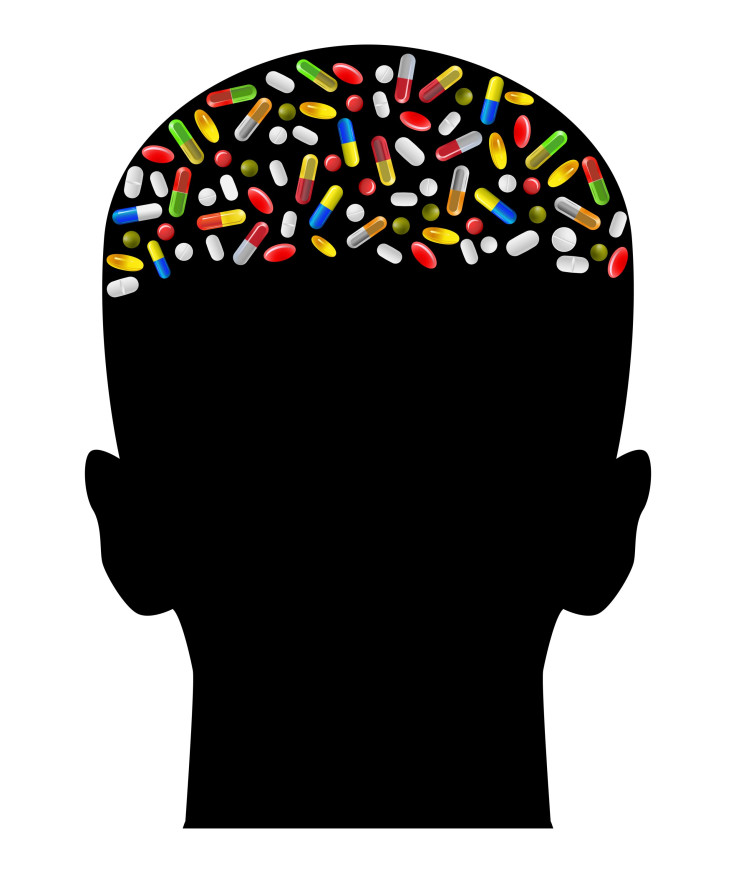Antipsychotics Are Being Given To Kids With Temporary Behavioral Problems Like ADHD

Doctors may be unnecessarily prescribing powerful antipsychotics to kids, a new study from the Journal of American Medicine (JAMA) Psychiatry finds.
Performing the most extensive analysis of antipsychotic use among children and adolescents of its kind, the study authors found that drugs normally recommended for the treatment of mental illnesses like schizophrenia and bipolar disorder are often being given to children and teens suffering from self-limiting behavioral dysfunctions or conditions like Attention-deficit/hyperactivity disorder. In many cases, these medications are handed to those with no mental illness diagnosis at all.
"No prior study has had the data to look at age patterns in antipsychotic use among children the way we do here," said co-author Dr. Michael Schoenbaum, senior advisor for mental health services, epidemiology and economics at the National Institute of Mental Health, in a press statement. "What's especially important is the finding that around 1.5 percent of boys aged 10-18 are on antipsychotics, and then this rate abruptly falls by half, as adolescents become young adults."
The study looked at data obtained from the IMS LifeLink LRx database, which records 63 percent of the prescriptions dispensed in the United States every year. They then compared the prevalence of antipsychotic use in different age groups from 2006 to 2010. Boys were more likely than girls to be prescribed these drugs, and the researchers were encouraged that, overall, antipsychotic use among children has slightly dropped from 2008 to 2010. (The average rates of use hover around 1 percent of the population)
Regardless, they were concerned about the fact that these drugs were usually given by medical professionals without efforts to seek safer, more appropriate, treatments or for conditions that are known to improve over age. "Antipsychotics should be prescribed with care," said Schoenbaum. "They can adversely affect both physical and neurological function and some of their adverse effects can persist even after the medication is stopped."
As the authors note, it’s recommended that preschool age children with mental health problems seek "comprehensive psychiatric assessment and a trial of a relevant psychosocial intervention before considering psychopharmacologic treatment." Often times, this didn’t seem to happen among those they studied.
The authors are careful to explain that the off-label use of antipsychotics in children and teens isn’t inherently wrong, as they can help to tamper down and manage behavioral symptoms. But because of the unknown risks that come with flooding a maturing brain with these drugs, they should be utilized only when it’s absolutely necessary.
It’s also not necessarily strange that these drugs were used in cases where the child had no mental health diagnosis, though it could suggest overuse. "Some primary care physicians may withhold mental disorder diagnoses because they are not reimbursed for these codes or to reduce stigma. In other cases, antipsychotics may be used to treat insomnia, agitation, or other symptoms that do not meet criteria for a mental disorder," they wrote.
The authors hope that their findings will prompt others to develop better, safer approaches to treating these serious but manageable conditions.
"Clinical policy makers have opportunities to promote improved quality and safety of antipsychotic medication use in young people through expanded use of quality measures, physician education, telephone- and Internet-based child and adolescent psychiatry consultation models, and improved access to alternative, evidence-based psychosocial treatments," they conclude.
Source: Olfson M, King M, Schoenbaum M. Treatment of Young People With Antipsychotic Medications in the United States. JAMA Psychiatry. 2015
Published by Medicaldaily.com



























